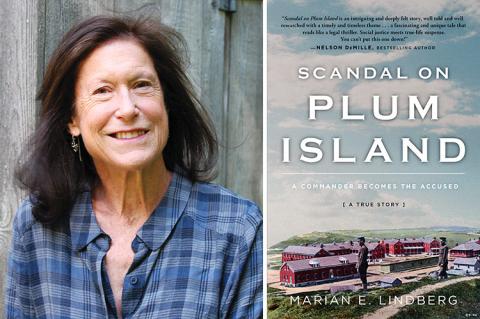Why was Maj. Benjamin M. Koehler, a distinguished veteran of the Spanish-American War and a West Point graduate, tried in a military tribunal for homoerotic acts?
Books
 The Guitarist as Force of Nature
The Guitarist as Force of Nature“Texas Flood,” a colorful biography of the complicated and obsessed Stevie Ray Vaughan, brings together the recollections of friends, bandmates, managers, fellow guitar heroes, and relatives like his older brother, the guitarist Jimmie Vaughan.
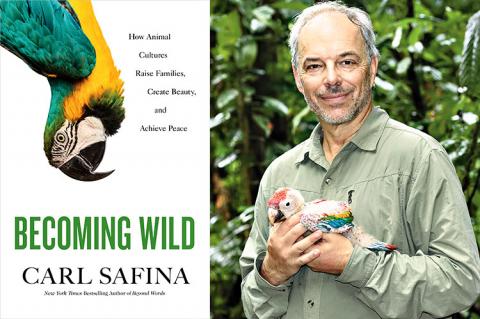 A Good Life on Earth
A Good Life on EarthCarl Safina is among those few standing in the way of the mass extinctions we’re causing. He beseeches us poetically and tirelessly to hear what nature is saying, and the way he shares his deep love of life on Earth can at times make reading his most recent book, “Becoming Wild,” rather difficult.
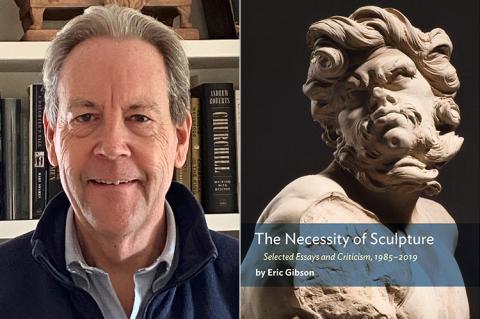 A Stroll Through Pleasures
A Stroll Through PleasuresThere are precious few introductions to the subject of sculpture, so Eric Gibson of The Wall Street Journal addressed that void with this collection of 36 clear and learned essays.
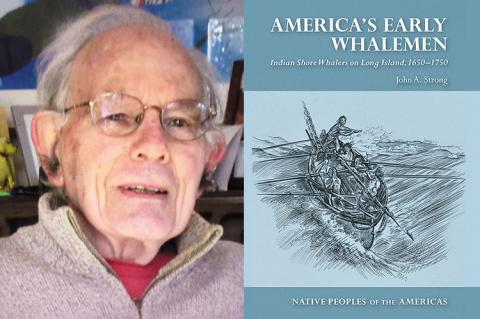 The English Cometh
The English ComethAfter more than 50 years of teaching, researching, lecturing, and publishing, John A. Strong has written the book we have all been waiting for, a chronicle of the clash of Indian and English cultures and whaling interests on Long Island in the years following settlement.
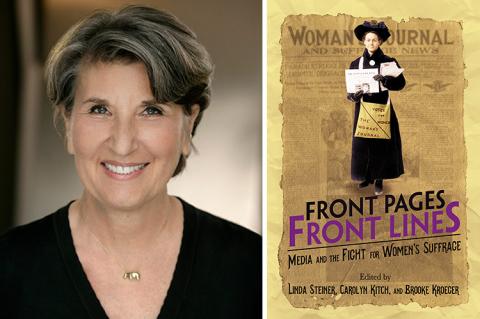 An Unfinished Quest
An Unfinished Quest “Front Pages, Front Lines” is a compendium of essays about the relationship between journalism and the women’s suffrage movement, but also a corrective of that reporting and what really happened.
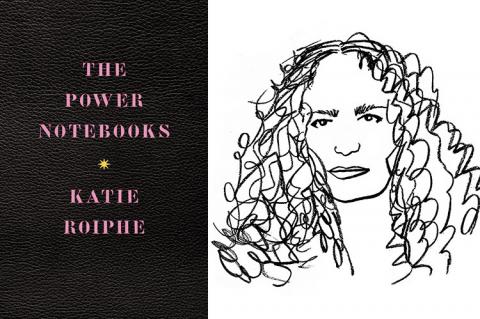 The Agony and the Analyses
The Agony and the AnalysesThe culture critic and iconoclast Katie Roiphe is specific about a particular preoccupation: “women strong in public, weak in private.”
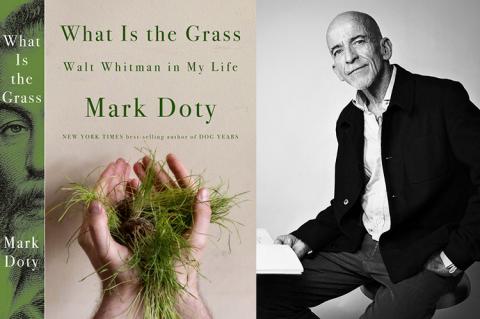 Waiting for Whitman
Waiting for Whitman From one poet to another: In his new memoir, Mark Doty explores the lasting effect Walt Whitman has had on his life and work, wondering at this “extraordinary flowering that seemed to appear out of nowhere.”
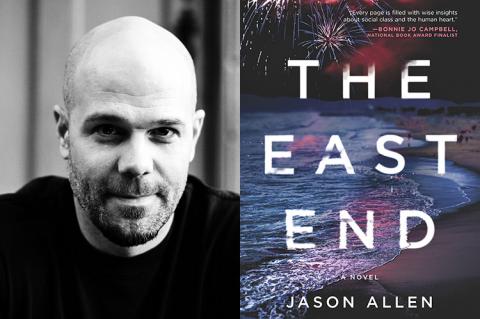 The Servant’s Revenge
The Servant’s Revenge Class warfare in the Hamptons gets personal, and dark, in Jason Allen’s debut novel, “The East End,” now out in convenient paperback for your reading pleasure.
 Life in the Plague Years
Life in the Plague YearsPaul Lisicky’s new memoir, “Later,” is at once a beautifully crafted description of the rhythms of life in a resort community and a story of surviving the height of the AIDS epidemic.
 The Escape Artist
The Escape ArtistJust what exactly is the legacy of Harry Houdini, this remarkable magician, escape artist, movie star, aviator, author, and investigator of the paranormal?
 Stars and Stripes Decoded
Stars and Stripes DecodedA deep dive into the classicism, Christianity, myths, and European heraldry behind Old Glory.
 The Power of Objects
The Power of ObjectsThe poet and professor Kimiko Hahn wonders in her new volume what sort of error it is to depend on stuff, as hoarder or as collector. Is it a societal problem of overconsumption? Or is it simply a behavior observable by a scientist?
 Crazy, Like a Fox?
Crazy, Like a Fox?And this week in part two of the mother of all Trump book reviews? The reality TV star gets political.
 Crazy, Like a Fox?
Crazy, Like a Fox?Donald Trump's unlikely, but far from accidental, path to the presidency, as told by those who were there.
 The Great Divide
The Great DivideCristina Alger’s latest crime novel imagines an East End answer to Jeffrey Epstein and two underage Latina murder victims as it explores class inequities in the realms of law enforcement and justice.
 Jewels From ‘Jools’
Jewels From ‘Jools’Surprisingly often it is life that imitates art in “Home Work,” Julie Andrews’s revealing memoir of her Hollywood years.
 The Empathy Revolution in Design
The Empathy Revolution in Design“User Friendly” is an insider’s history of design, highlighting triumphs and catastrophes, foibles and advancements, a new benchmark in the study of user experience.
 A Guide to the Great Composers
A Guide to the Great ComposersIn “The Indispensable Composers,” Anthony Tommasini of The Times brings to bear wide personal experience, extensive knowledge, an approachable teaching style, and deep fondness for the material in taking us on a delightful journey.
 Breaking Bad
Breaking BadA little beat up, a little worn down, getting long in the tooth, Sam Acquillo’s back for another seat-of-the-pants investigation into depravity.
 In the Moment: A Pushcart for 2020
In the Moment: A Pushcart for 2020The new Pushcart Prize table of contents lets us know that authors are thinking about drug overdoses, racism, cultural appropriation, caring for elderly family members, and the complicated political divide.
 It Was a Mag Mag World
It Was a Mag Mag World“Mag Men” by Walter Bernard and Milton Glaser, the formidable graphic designers whose work with New York magazine left a huge imprint on American journalism, adds to the bleak realization that an era has ended, but what a wonderful retrospective of a 50-year legacy of art direction this is.
The incredible journey of a refugee Iraqi cat is out in a $7.99 paperback edition, and a Star “Guestwords” and book review contributor makes good with a collection of his own.
 The Year’s 10 Best Books
The Year’s 10 Best BooksFrom Mary Gaitskill’s novelistic reconsideration of the #MeToo movement to Elton John’s hilarious self-mockery, our man in letters picks ’em . . .
 A Tale of Pride and Shame
A Tale of Pride and ShameThis heroic story, an uplifting portrait and an engaging account of a glamorous age, also shows what happens when a unique individual who finds acceptance overseas runs headlong into American racism.
 The College Trap
The College TrapThe big story Paul Tough tells in “The Years That Matter Most” is about the failure of higher education in the 21st century to provide equal opportunity to all segments of American society. But it will lead you to reflect on your own academic experience, too.
 A Thousand Points of Data
A Thousand Points of DataMichael Bloomberg, the larger-than-life former mayor of New York, ubiquitous and initiative-heavy, has no greater fan than Eleanor Randolph, journalist and now biographer.
 Among the Bumbling Germans
Among the Bumbling GermansWhat’s different about Alan Furst’s latest World War II tale of espionage is its hero — a rank amateur, a naive neophyte, and, like his creator, a writer of spy novels.

